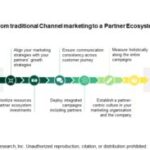Amidst all of the buzz around Copilot at Microsoft Ignite last week, “SharePoint Premium” was revealed. While this is partially a branding and licensing streamlining effort, SharePoint Premium will continue to evolve into an AI-powered content platform with document automation, metadata enrichment, and other intelligent content services. Managing the end-to-end lifecycle of “high-value content”, such as contracts and agreements, is a core use case for SharePoint Premium.
SharePoint Premium will absorb the range of “Content AI” services launched as “Syntex” in 2022. The Syntex brand will be retired.
This enhanced edition of SharePoint will offer new capabilities including:
- Document Hub: A secure, brandable, external access interface to ease collaboration with external stakeholders such as customers, suppliers, or law firms.
- Document Generation: Tools to assemble high-value documents, such as contracts, via templates and trusted data to auto-fill details. An AI-based rules engine can flag deviations from similar documents, or if any standard agreement elements are missing.
- Clause Analyzer: An AI service that will analyze large volumes of uploaded high-value documents and flag any risks that need attention.
- SharePoint eSignature: A native eSignature tool that will be available in early 2024. Partnerships with eSignature providers DocuSign and Adobe will also ensure support for those popular tools.
- Archive: A service to proactively move aging content to less expensive storage tiers as it lives out its policy-driven lifecycle. This is now in public preview. Admins can still retrieve or restore content, such as for eDiscovery or audits, but the inactive content is out of view for users.
- Enhanced Governance: A set of reporting and mitigation tools to identify content that is shared too widely or incorrectly. Sites can be reviewed to confirm access controls. An AI-driven policy recommendation tool can benchmark a site against known well-governed sites and provide suggestions for improvement.
Organizations that want to be Copilot ready will want to explore these enhanced governance tools. Copilot for Microsoft 365 (like other GenAI interfaces from content management vendors such as OpenText Aviator and Box AI), uses the underlying permission structure to determine what information a particular user can access. A strong and accurate permission baseline, in combination with security policies established in Microsoft Purview, will help organizations reduce risks related to unauthorized access to sensitive information. These enhancements, if proven among real world Copilot early adopters, will help users establish trust in their AI assistant.
Want to talk about your content management roadmap in this era of Generative AI? Let’s set up a guidance session or inquiry.
With contributions from J.P. Gownder, VP, Principal Analyst








